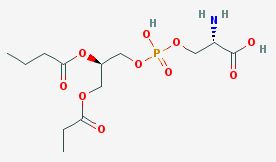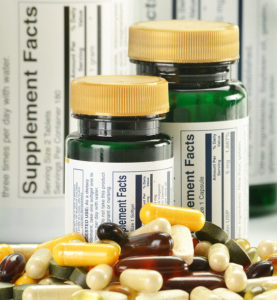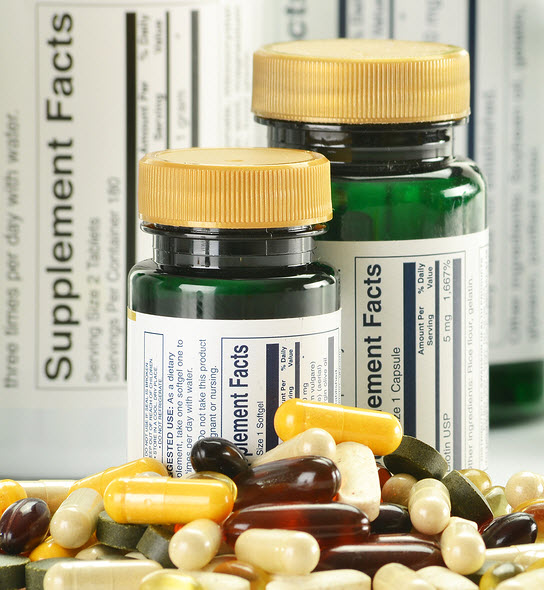Table of Contents
Phosphatidylserine (PS) is a phospholipid component of the membrane encasing every one of your brain cells.
PS helps maintain the fluidity and permeability of brain cells. Allowing for the efficient transfer of proteins, enzymes, nutrients, oxygen and glucose into and out of each cell.
Phosphatidylserine is involved in the formation and sending of signals within neurons. And the chemical signaling that takes place across neural synapses.
PS promotes healthy nerve growth factor (NGF), and supports the neurogenesis needed for long-term potentiation (LTP). Memory formation depends on healthy LTP.
Phosphatidylserine is involved in building mitochondria which are the energy centers of each brain cell.
Phosphatidylserine (PS) is arguably one of the most effective and important nootropics we have available today. PS keeps our brain cells healthy. And has a reputation for improving alertness, attention, cognition, memory, recall and mood.
Phosphatidylserine helps:
- Neuro-optimization: Phosphatidylserine (PS) keeps brain cells fluid and permeable. This neuroplasticity helps neurons form new connections needed for memory formation. PS is integral to cleaning up damaged neurons and maintaining an optimized brain.[i] And PS boosts mental energy by easing the flow of glucose and oxygen needed to power brain cells.
- Neurotransmitters: Phosphatidylserine is an integral part of the flow of crucial neurotransmitters like dopamine and acetylcholine. And phospholipids contain choline which is a precursor to acetylcholine (ACh). So PS will increase ACh levels in your brain. Affecting cognition, memory and mood. And reducing anxiety.
- Neurogenesis: Phosphatidylserine works in concert with the DHA in Omega-3’s and keeping brain cells optimized. Prolonging neuron survival and health. And the combination of Phosphatidylserine and DHA has been shown in several clinical studies to upregulate Brain-Derived Neurotrophic Factor (BDNF).
Overview
Phosphatidylserine (PS) is a phospholipid component of brain cell membranes. The membrane is the outer casing surrounding each cell. PS plays a vital role in cell-to-cell signaling in the brain. And is needed to maintain the fluidity of all cell membranes.

Phosphatidylcholine (PC) is the most abundant phospholipid in the brain. Followed by a slightly lesser amount of Phosphatidylserine (PS).
Phosphatidylcholine (PC) is in the outer layer of brain cell membranes, and Phosphatidylserine (PS) is part of the inner layer. Both are critical to maintaining optimal cognitive health. PS is synthesized from PC in the brain by exchanging the base head group with a serine.
Phosphatidylserine (PS) supports the formation and sending of neural signals within neurons. And across synaptic junctions that link one neuron with another. This cellular communication is how we form memories.
Phosphatidylserine (PS) also helps nerve growth factor (NGF) that ensures healthy neurogenesis. And PS even assists in building mitochondria which are the energy source in every one of your brain cells.
When your brain cell membranes are healthy, they are malleable, fluid and flexible. But by the time we reach our 20’s, phospholipids including Phosphatidylserine (PS) start declining. This casing starts to harden. And attention, concentration, memory, mood and learning begin to suffer.[ii]
The good news is you can prevent this cellular damage from happening. The amount and type of long-chain fatty acids in your diet affects the composition of these cell membranes.
The structure and function of your cells depend on the ideal balance of fats including cholesterol, oleic, palmitic and stearic fatty acids. And essential fatty acids like Omega 3. Without this proper balance, cell membrane function is compromised.
But our typical modern diet does not provide the ideal balance of fatty acids (phospholipids) to maintain brain cell health. It’s why we experience brain fog, memory loss, slow thinking and poor decision making.
You naturally get Phosphatidylserine (PS) from foods like cow brains, pig spleen and chicken hearts. So there must be some merit to the saying, “Eat brains and get smarter”!
Unfortunately, not many of us include organ meat as part of our daily meal plan. So the best way to maintain healthy levels of Phosphatidylserine (PS) in your brain is taking PS as a nootropic supplement.
Phosphatidylserine (PS) was originally made from bovine (cow) brains. But with the mad cow disease scare, PS supplements are now made from extracts of soy or sunflower lecithin.
How does Phosphatidylserine work in the Brain?
Phosphatidylserine (PS) boosts brain health and function in several ways. But two in particular stand out.
- Phosphatidylserine (PS) is needed for memory. PS stimulates the brain chemicals that boost neural signaling for quick, clear thinking. In fact, Phosphatidylserine is one of the most effective memory boosters known.
Phosphatidylserine (PS) has been shown that it can slow, halt and even reverse the progression of age-related cognitive decline. One study with 149 patients meeting the criteria for age-associated memory impairment were given 100 mg of Phosphatidylserine (PS) or a placebo for 12 weeks.
The patients who received Phosphatidylserine (PS) showed improved performance on tests related to learning and the memory tasks of daily life. The study concluded that Phosphatidylserine (PS) was a promising candidate for treating memory loss later in life.[iii]
- Phosphatidylserine (PS) helps repair neurons. Phosphatidylserine (PS) works in concert with DHA (Omega-3) to protect brain cells from damage. And boost neuronal survival.
You brain is made up largely of DHA fat. The kind of fat you get from supplementing with Omega-3’s. And a decrease in DHA content in the brain results in cognitive impairment. Studies show that Alzheimer’s Disease is associated with lower Omega-3 fatty acid intake.
Researchers in Canada looked at samples provided by the Memory and Aging Project. And found a significant difference in plasma fatty acid profiles of those with Alzheimer’s, mild cognitive impairment and those with perfectly healthy brains.
The team found that DHA and Phosphatidylserine (PS) in both disease categories was 12-14% lower than those of healthy brains. They concluded that Alzheimer’s Disease is associated with lower DHA and Phosphatidylserine (PS).[iv]
Trials and clinical studies like these provide plenty of motivation to supplement with Phosphatidylserine (PS) and DHA. It will help you ward off neurodegenerative disease. DHA and Phosphatidylserine (PS) for an optimized brain.
How things go bad
As we get older, our brain chemistry and energy metabolism changes. This can happen at any age once we enter our adult years.
↓ Brain cell membranes lose fluidity
↓ Neurotransmitter signaling declines
↓ Recall, reaction time and mood diminish
↓ Memory declines
All of these changes can happen at any age. And starts as early as our 20’s. Our cell membranes are influenced by the food we eat, what we drink, lifestyle habits, the air we breathe and more.
So Phosphatidylserine (PS) can help for age-related cognitive decline, as well as a student looking to do better in school.
Phosphatidylserine benefits
Phosphatidylserine (PS) makes up about 15% of the total phospholipid pool in your brain. Phosphatidylserine (PS) is located mainly in the internal layer of your brain cell membranes.
Phosphatidylserine (PS) is involved in governing membrane fluidity, and the regulation of all activity going on in that brain cell. Phosphatidylserine (PS) interacts with cellular proteins, modulates the activity of neuroreceptors, enzymes, ion channels, and signaling molecules.
Supplementing with Phosphatidylserine (PS) improves brain function that tends to decline with age. Healthy brain cell membranes support neuroplasticity so neurons can form the connections needed to convert new experiences into memories.
Phosphatidylserine (PS) helps lower cortisol and ACTH levels during intense exercise.[v] Phosphatidylserine (PS) is even effective in relieving stress. And putting you in a better mood during exams.[vi]
Many clinical trials with Phosphatidylserine (PS) have shown improvements in working- and long-term memory, recall, logic and even speech. Attention span increases while using Phosphatidylserine (PS). And motivation, socialization and initiative all increased when using Phosphatidylserine (PS) as a nootropic.
How does Phosphatidylserine feel?
Neurohackers report that using Phosphatidylserine (PS) as a nootropic:
- Boosts energy levels

- Improves alertness
- Less brain fog
- Better memory
- Logical thinking improves
- Concentration is better
- Clarity of thought
- Weight loss
- Easier to remember names, phone numbers, tasks, etc.
- Mood improves
- Anti-anxiety
- Lowers cortisol
- Relieves insomnia
- Vivid dreams
There are reports that Phosphatidylserine (PS) helps with Tourette’s Syndrome.
Phosphatidylserine (PS) a great compliment to ADHD meds. PS helps tame the symptoms of ADHD. And doesn’t interfere with popular stimulants like Ritalin and Adderall. You may even be able to cut back on the ADHD meds once Phosphatidylserine (PS) builds up in your system.
Phosphatidylserine Clinical Research
Phosphatidylserine Reduces Beta Brain Waves
Beta brain waves have the most rapid pattern of all the brain waves produced in your brain. Beta waves are associated with concentration, arousal, alertness and cognition.
But it would be unpleasant to be in a constant state of arousal. This study in Germany gave 16 healthy subjects Phosphatidylserine (PS) for 42 days. The team tested brain wave patterns before supplementation. And again in 42 days.
The main finding in this study was that chronic Phosphatidylserine supplementation significantly decreases Beta brain waves. And the results showed that the Phosphatidylserine (PS) group were connected to a more relaxed state compared to the controls.[vii]
Phosphatidylserine Reduces Stress
Studies have shown that Phosphatidylserine (PS) blunts the release of cortisol in response to exercise stress. And Phosphatidylserine (PS) improves mood. In this study, researchers at the University of Wales Swansea gave young adults 300 mg of Phosphatidylserine (PS) each day for a month.
The study resulted in these young adults feeling less stressed after doing a stressful arithmetic task. And they were in a better mood. The researchers concluded that Phosphatidylserine (PS) supplementation improves mood and reduces stress even in healthy, young people.[viii]
Phosphatidylserine Improves Cognition in Athletes
Phosphatidylserine (PS) is found in the cell membranes of most animals and plants. Phosphatidylserine (PS) has been shown to reduce stress and increase performance in runners, cyclists and golfers.
 This double-blind, placebo-controlled study was conducted to study the effects of Phosphatidylserine (PS) on cognitive function, mood and endocrine response before and after intense exercise.
This double-blind, placebo-controlled study was conducted to study the effects of Phosphatidylserine (PS) on cognitive function, mood and endocrine response before and after intense exercise.
18 lower body, resistance-trained male college athletes took Phosphatidylserine (PS) for 14 days, or a placebo. Following 14 days of supplementation, participants performed an acute bout of lower body resistance training.
Mood and cognitive function were measured before, 5 minutes after and 60 minutes after exercise. And blood samples were drawn prior to, 5, 15, 25, 40 and 60 minutes after exercise. Blood was tested for cortisol and testosterone.
The researchers found that Phosphatidylserine (PS) significantly increased cognitive function prior to exercise. And Phosphatidylserine (PS) prevented both mood and hormones from being negatively affected prior to and following resistance exercise.[ix]
Phosphatidylserine Reduces Symptoms of ADHD
Researchers in Japan conducted a randomized, double-blind, placebo controlled trial with 36 children aged 4 – 14 years. The kids were diagnosed with ADHD but had not received any conventional ADHD treatment prior to the trial.
The children received 200 mg of Phosphatidylserine (PS) or a placebo daily for 2 months. The team recorded the children’s ADHD symptoms, short-term and working memory, and mental performance.
The team found that Phosphatidylserine (PS) significantly improved ADHD symptoms and short-term memory. ADHD symptoms that were reduced included inattention, short-term memory problems, and impulsivity. The placebo group saw no improvement during the trial.[x]
Another study with 200 ADHD children looked at the effects of Phosphatidylserine (PS) combined with Omega 3’s for 30-weeks. The key finding of this trial was a significant reduction in the restlessness/impulsive scale and an improvement in emotions.
The researchers concluded that Phosphatidylserine (PS) with Omega 3 may reduce ADHD symptoms in children with ADHD. And it was especially effective in a subgroup of hyperactive-impulsive, emotionally and behaviorally-dysregulated ADHD children.[xi]
The bottom line is that if you have Adult ADD like I do, or you have children with ADHD or ADD, consider 200 mg of Phosphatidylserine (PS) for a couple of months before going with Adderall or Ritalin. And add in some Omega 3’s for good measure.
Or find a ready-made Nootropic stack like Mind Lab Pro™ that already has 100 mg of Phosphatidylserine (PS) in their formula. No side effects and you just might get rid of the ADHD symptoms that are plaguing you.
Phosphatidylserine Improves Memory
Several studies have shown that using Phosphatidylserine (PS) as a nootropic to boost memory works well both for age-related cognitive decline as well as more serious diseases like Alzheimer’s and dementia.
A double-blind, placebo controlled trial in Tel Aviv worked with 18 healthy elderly volunteers with age-related cognitive decline. The volunteers took 100 mg of Phosphatidylserine (PS) 3-times per day for 12 weeks. They were evaluated at the start of the trial, at 6 weeks of treatment and at the end of the trial.
All but two of the volunteers showed significant improvement in memory from using Phosphatidylserine (PS). Memory and cognition improved in the first 6 weeks of Phosphatidylserine (PS) use. And continued to get better until the end of the 12-week trial.[xii]
Another trial with 51 Alzheimer’s patients using 100 mg of Phosphatidylserine (PS) for 12 weeks showed that PS may be a promising candidate for the early stages of Alzheimer’s Disease.[xiii]
Phosphatidylserine Recommended Dosage
Recommended Phosphatidylserine (PS) dosage is 100 mg 3-times per day.
 If you’re concerned about Genetically Modified Organisms (GMO) like I am, make sure you find Phosphatidylserine (PS) that is non-GMO. Because most Phosphatidylserine (PS) is derived from the lecithin of soybeans.
If you’re concerned about Genetically Modified Organisms (GMO) like I am, make sure you find Phosphatidylserine (PS) that is non-GMO. Because most Phosphatidylserine (PS) is derived from the lecithin of soybeans.
And oddly enough a manufacturer may use both GMO and non-GMO. And not have it marked on the packaging.
I’m aware of at least one supplement maker who offers non-GMO Phosphatidylserine (PS) in their 120-count bottles. But their 60-count bottles are made with GMO soybean lecithin. Do your research.
Even better is find Phosphatidylserine (PS) that is made from non-GMO sunflower lecithin. Especially if you’re allergic or react to soy. Like used in my favorite pre-made nootropic stack: Mind Lab Pro®
Phosphatidylserine Side Effects
Phosphatidylserine (PS) is naturally produced in your body and is considered well tolerated and safe. Phosphatidylserine (PS) is non-toxic.
Some may experience insomnia or stomach upset at higher than recommended doses.
Medications for Alzheimer’s may interact with Phosphatidylserine (PS) because these drugs are often Acetylcholinesterase (AChE) inhibitors. An AChE inhibitor will increase the amount of acetylcholine (ACh) in your brain. And since Phosphatidylserine (PS) increases ACh, you may end up with too much acetylcholine.
Type of Phosphatidylserine to Buy
Phosphatidylserine (PS) is sold in tablet or capsule form. Capsules can run from 100 to 300 mg each.
Plain Phosphatidylserine (PS) was originally sourced from cow brains. But since the mad cow disease scare, most Phosphatidylserine (PS) supplements are now made from soybean lecithin.
Enzymotec makes a unique form of Phosphatidylserine (PS) called Sharp PS® Green. It is made from vegetable sources that are not soy-based, and is non-GMO.
Several supplement makers offer this branded form of Phosphatidylserine (PS) which they license from Enzymotec.
Mind Lab Pro® includes 100 mg of Phosphatidylserine (PS) that is derived from non-GMO sunflower lecithin.
I recommend Mind Lab Pro because it addresses all aspects of anxiety resistance, memory and cognitive enhancement, stabilizes mood, brain repair, and maintenance.
This premium nootropic stack is designed to boost key neurotransmitters, cognitive energy, brain waves, neuroprotection, and regeneration. See my Mind Lab Pro review for a detailed report.
CHEMI Nutra also makes a branded form of Phosphatidylserine (PS) made from soy lecithin called SerinAid®. A few supplement makers license this brand of Phosphatidylserine (PS) for use in their Phosphatidylserine (PS) products.
Nootropics Expert Recommendation
Phosphatidylserine (PS) 100 mg 3-times per day
 I recommend using Phosphatidylserine (PS) as a nootropic supplement.
I recommend using Phosphatidylserine (PS) as a nootropic supplement.
Phosphatidylserine (PS) is arguably one of the most effective and important nootropics we have available today. Phosphatidylserine (PS) keeps our brain cells healthy. And has a reputation for improving alertness, attention, cognition, memory, recall and mood.
Phosphatidylserine (PS) helps lower cortisol which can reduce stress, and help with insomnia. And provide you with a stress-free workout in the gym or on the court.
Phosphatidylserine (PS) clears brain fog, boosts energy levels, helps alertness, and provides clarity to your thought process.
You can get Phosphatidylserine (PS) from food. But the highest concentrations of Phosphatidylserine (PS) are found in organ meats like cow brains and pig spleen.
Phosphatidylserine (PS) levels decline as you age starting in your 20’s. And you are unlikely to get nearly enough through diet. So to get its benefits you should take it as a nootropic supplement.
I suggest starting with a dose of Phosphatidylserine (PS) at 100 mg 3-times per day. Dosing should not exceed 500 mg per day. And there is little benefit to overdoing it with Phosphatidylserine (PS).
You can buy individual Phosphatidylserine (PS) supplements. Or you could try my favorite pre-formulated nootropic stack Mind Lab Pro® which includes Phosphatidylserine (PS) from non-GMO, organic sunflower lecithin.
Mind Lab Pro contains a synergistic blend of 11 brain enhancing nootropics covering all aspects of cognition and brain health. See my full Mind Lab Pro review for more.








Join The Discussion - 237 comments
Rick
September 23, 2020
Thank you for the informative article. Question: would taking lecithin do the same as PS? Could it be beneficial to combine the two?
David Tomen
September 23, 2020
Rick, the answer is a BIG no. Lecithin will not do it and it not a good source of PS. Sure, it may be derived from lecithin but it’s not lecithin that our body uses. It’s PS and taking lecithin with it or instead of is a waste of time.
Adrian
September 21, 2020
Hi David,
Is it possible to promote cell membrane integrity and permeability with CDP-choline and DHA? If I’m correct, one would normally take both PC and PS to promote cell membrane integrity and permeability, but I was wondering whether this could also be achieved with CDP-choline and DHA. I read in your article about CDP-choline that research has shown that cdp-choline boosts membrane phospholipids by 32%. Does this imply that a PC and PS supplement are no longer needed because CDP-choline already boosts the level of phospholipids in your brain?
My final question is are there any additional benefits of PC and PS over the combo CDP-choline and DHA wrt brain health?
Many thanks,
Adrian
David Tomen
September 21, 2020
Adrian, if you wanted to cover all angles I’d suggest using PC + CDP-Choline + DHA. Adding PS as well would not be overdoing because each of these supplements comes into play in different parts of the synthesis pathway.
Justine
September 20, 2020
I have started taking PHOSPHATIDYLSERINE at a dose of 200 mg per day and right away it gave me very vivid nightmares, like from psychological thrillers. Because of that I became even more anxious during the day. I wonder if Phosphatidylserine causes it, or have I simply started to remember my dreams? When I tried L-theanine, that also was supposed to help me with my anxiety but it put me on the edge and I was angry constantly. I start to wonder why these tend to have the opposite on me 🙁 Is it maybe because my brain is lacking some other substance…
David Tomen
September 21, 2020
Justine, some would envy your reaction to PS. But I understand it’s opposite of what you are looking for. However, I’m going to need your help here. Go back to the top of this review and become as familiar as you can with how PS works in your brain. Then do the same for L-Theanine.
And once you have a handle on how each of these two nootropics works see if you notice any similarities.
It could be both affect the same brain wave frequency, or the same neurotransmitter system (i.e. dopamine), or a similar function (i.e. neurogenesis). Once you’ve isolated one or two main points they share you may be on to something.
Anxiety can be caused by a host of things. Including excess norepinephrine which is synthesized from dopamine. You may find that neither of these supplements are for you. And instead maybe something like Lemon Balm would be better.
Let me know what you discover and we’ll take it from there …
Justine
September 23, 2020
I decided to change the times when I take the PS for the earlier day during the day and the nightmares went away, but every night I have very vivid dreams I remember them very well.
I start to think my brain has an extreme sensitivity to any substance. A lemon balm tincture can totally knock me out to sleep. When I was experimenting with psychedelics when younger, my threshold would be 3-4 times less than everyone else’s.
I also been taking Rhodiola Rosea for some time now and had to lower the recommended dosage, as I could not even concentrate on my thoughts.
It’s very interesting how everyone’s brains work differently.
So i guess the 200 mg of PS per day is my threshold and when taking it in the evening, I started having side effects that usually appear after taking much higher amounts.
Thank you for your help David! You guys doing such an amazing job here!!! Please never stop educating us!! 🙂
David Tomen
September 23, 2020
Thanks for your feedback Justine. Much appreciated.
Mishur
February 19, 2021
This exact thing happened to me once I took PS a couple days in row. The description of psychological thriller describes it perfectly. Strangely, although it was extremely vivid and very much a nightmare, I was calm through the entire dream and when I woke up in the middle of the night, I was perfectly calm and my heart was not racing like a regular nightmare. There was an element of detachment like it was a movie I was in. Very interesting to see someone else has had a similar experience though.
Arnold
May 21, 2020
I’m currently taking a vitamin shoppe “Sharp PS” one.. I was wondering if you have ever heard about the manufacture of Phosphatidylserine “Double Wood LLC” .. They offer a cheaper price. Wondering if it’s just as effective as the Sharp PS ones..
David Tomen
May 22, 2020
Arnold, Sharp PS is a patented form of Phosphatidylserine which is used in some PS supplements. Not sure about Double Wood but can verify that they are a reputable company and produce quality products.
Arnold
May 29, 2020
Thanks for the reply. I started taking 300mg PS with my fish oil supplements. The fish oil alone did wonders for my anxiety and depression.. I noticed since I started PS I’m very anxious, hard to focus and just not calm anymore with my thoughts. Ever heard of some people reacting this way? Any other recommended nootropics?
David Tomen
June 1, 2020
Arnold, what type of PS did you buy? Because I’ve not come across the side effects you mention. Only thing I can think of is if it’s PS made from soy, you could be having a bad reaction to soy. Which is common.
The best quality Phosphatidylserine (PS) is made by Enzymotec. They make a unique form of Phosphatidylserine called Sharp PS®. It is made from vegetable sources that are not soy-based, and is non-GMO.
To answer your last question – anxiety and depression are two different things. And I cannot make a recommendation without knowing the cause. These two posts may help you find something that works:
https://nootropicsexpert.com/best-nootropics-for-social-anxiety/
https://nootropicsexpert.com/best-nootropics-for-depression/
Nigel
April 21, 2020
David, I’ve heard of a so-called “Jet Lag Protocol” which suggests using 400-600 grams of Phosphatidylserine before bed. The aim is to reduce Cortisol levels during the night. I have lately been having problems with early waking -after about 5-6 hours of sleep- and being awake for an hour or two before going back into a deep sleep for another 3 hours or so. This is know as “maintainance insomnia”, ie, going to sleep is not a problem, but maintaining the sleep state and staying asleep for the whole night is. This could be ascribed to irregular Cortisol spikes occuring, which have often been associated with insomnia in general. Cortisol is the wakefulness and also a “fight or flight” hormone released by the sympathetic nervous system, as you know.
I note that the first poster in this thread reported “Taking it (Phosphatidylserine) at night interrupts my sleep”, yet a later poster wrote “I can’t take this during the day as it causes brain fog and drowsiness”. So there are possibly other factors at play.
Since my consultation with you last year I’ve been taking the recommended stack plus a few additions and it’s helped me get through a very challenging time in my professional life. Your tip about Cherry Pure for boosting Melatonin in particular has ben a revelation and markedly improved my sleep quality in the last 6 months or so. I think I need to pay more attention to the timing and dosage of the Cherry as lately the mighttime/early morning premature waking has become an issue. I’m hoping the Phosphatidylserine may help- will report on that.
I’m 65 BTW and it’s generally known that advancing years can bring changes in levels of all hormones and their regulation. I should add however that in this very challenging time, waking and worrying is probably common for many people. Worry will always activate the Sympathetic Nervous System and release Cortisol. I find if I just stay in bed and breath calmly, I do eventually return to sleep, even though it might take a long time. I practice meditation, which helps, and have also found Logosynthesis to be very effective in releasing unhelpful thought patterns.
I’ll also post this in your Melatonin thread – Hope that’s ok with you-if not, please just erase whichever duplicate post you choose
Very many thanks
Nigel
Rifat Al-chadirji
April 13, 2020
Hi David,
I am taking phosphatidyl serine and was wondering if I would still get all the benefits throughout the next day if I took it consistently at 7pm and at bedtime.
Thank you!
David Tomen
April 23, 2020
Rifat, the half-life of Phosphatidylserine is about 8 hours (https://www.ncbi.nlm.nih.gov/pubmed/1008849) so dosing it morning and night would make the most sense.
TallyMom
March 24, 2020
Thanks for the information! I’ve been using the NOW PS supplement recommended and having great results except for a slight headache. I’ve been taking two in the am. Taking it at night interrupts my sleep. Should I reduce to one a day? Or maybe one at breakfast and one at lunch? Or combine this with choline?
David Tomen
March 24, 2020
TallyMom, are using any prescription medications that act as an acetylcholinesterase (AChE) inhibitor? Because if you are that may increase acetylcholine too much. Which could cause problems.
Try reducing your dose to one in the morning and possibly another at noon. No later if it causes insomnia for you. If you’re going to combine it with anything try a DHA supplement. NOT Omega-3 or fish oil. NOW Foods makes a 500 mg DHA supplement which should work.
Tallymom
March 24, 2020
Thanks so much for your reply. I don’t take any prescription meds but I do take a fair amount of different supplements: magnesium; liver cleanse; glucosamine; vitamin C & D and lately elderberry.
I will try one in the am and see if that helps.
Thank you,
Mike Kaminski
January 25, 2020
Hello I’m taking 200mg ps a day with 300mg Alpha Gpc, bacopa, ashwagandha and I’m currently taking out alcar from my stack. Am I ok? Or it’s not too much acetylcholine?
David Tomen
January 26, 2020
Mike, only you can decide if it’s “too much acetylcholine”. Because it varies from person to person.